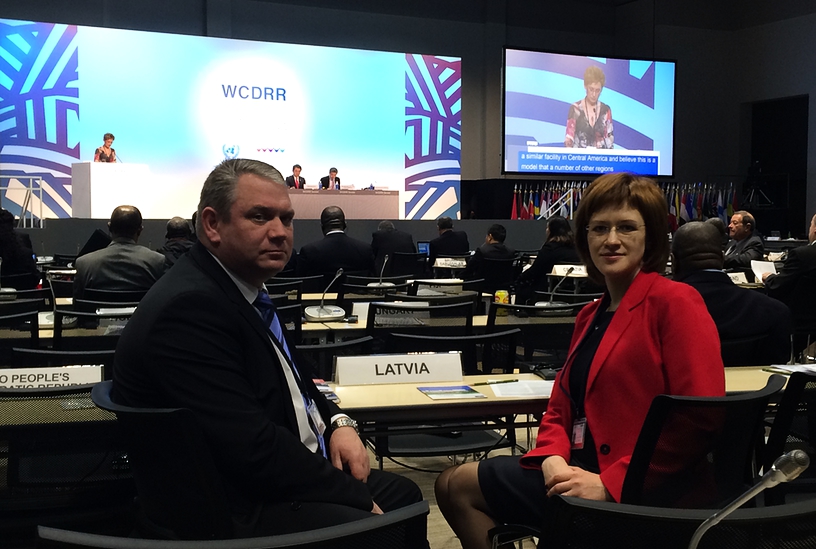As delegation head, the Latvian Foreign Ministry’s Parliamentary State Secretary for European Affairs, Zanda Kalniņa-Lukaševica stressed that disabled persons and people with special needs should also be involved in the process of preparing to deal with disasters, reported the Foreign Ministry's press service.
She argued that, as in other fields of sustainable development, all efforts must try to ensure that nobody is left out of the process of disaster risk reduction. The groups of people most exposed to higher risks, for instance, persons with disabilities, as well as children and the elderly, should not only be provided with assistance in disaster situations, but also be engaged in the planning itself.
“Today’s discussions at the UN world conference have offered practical examples of how to take advantage of the experience and knowledge of people with disabilities”, she said.
She also mentioned that the Latvian Presidency of the Council of the EU would pay special attention to persons with disabilities throughout the disaster management cycle, in order to raise awareness and preparedness for disaster situations among these social groups.
Last week the Council of the EU adopted resolutions on disability-inclusive disaster management, which aim at the need to strengthen the observance of the rights and interests of the people concerned in the field of disaster management. EU Member States commit themselves to including the interests and rights of people with disabilities in policy planning, risk assessment, crisis management planning and providing humanitarian assistance.
Kalnina-Lukaševica insisted that the public education and awareness-raising is essential for dealing with the consequences of disasters. Persons with special needs often cannot obtain information by traditional means – reading, hearing or seeing, and therefore, rescue services and other institutions should envisage options to compile and convey information in audio formats, easy-to-read language or sign language. Also, persons with disabilities and special needs should have equal opportunities for communicating with rescue services in emergency situations. Introducing innovative technologies in the work of the responsible authorities can be an important contribution to enhancing access to information, she said.
The recent natural disaster in Vanuatu, which was hit by a devastating cyclone last week, underscored once again that an unexpected natural disaster can impact a country in every respect.
Also, having just returned from a fact-finding mission to Ukraine's war-torn eastern provinces last month, disability rights organization SUSTENTO head Gunta Anča reported on the plight of the physically disabled people of the region, who are all but stranded in the battle zones, in basements or other shelters severely lacking in food, water and other basic human needs, let alone the type of care these people require.
The UN World Conference on Disaster Risk Reduction ends today in the city that was severely affected by an earthquake and the tsunami that followed in its wake in 2011, but which has been able to successfully recover. The conference has brought together 4,000 participants representing governments and civil society, including 20 Heads of State, and 100 officials at the ministerial level. Also taking part in the event is UN Secretary General, Ban Ki-Moon. The objective of the conference is to agree on a new framework for disaster risk reduction that would replace the previous ten-year Hyogo Framework for Action plan approved in Hyogo in 2005.
The Latvian delegation, led by the Parliamentary State Secretary for European Affairs of the Ministry of Foreign Affairs of Republic of Latvia, Zanda Kalniņa-Lukaševica, also includes representatives from the Ministry of the Interior, the State Fire and Rescue Service of Latvia, and diplomats from the Latvian Embassy in Japan.





























